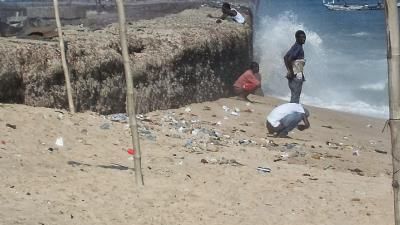
UNICEF urges political heads to commit to open defecation-free targets
The five regions in the north of the country have begun an initiative to collaborate in fighting open defecation.
In line with the initiative, a Ministers' Sanitation Summit was held at Mole in the Savannah Region on the theme: "Ownership and leadership to deliver sanitation results".
Regional ministers and their deputies in the five regions — Northern, Savannah, North East, Upper West and Upper East — as well as Metropolitan, Municipal and District Chief Executives (MMDCEs), regional environmental health officers, Coalition of NGOs in Water and Sanitation, UNICEF officials and other stakeholders in the sanitation sector attended the summit.
It was organised by the Northern Regional Coordinating Council (RCC), in collaboration with the Ministry of Local Government and Rural Development and the Ministry of Sanitation and Water Resources, together with their development partners. The summit served as a learning platform to deepen dialogue in the fight against open defecation.
It was also a meeting place at when feedback was received and shared on the way forward to improve upon basic sanitation in the regions and the country as a whole.
Premium
In her address to the summit, the Chief of Field Office at the Tamale office of the United Nations Children’s Fund (UNICEF), Ms Margaret Gwada, urged political heads at the regional and local levels to put premium on eliminating open defecation in their communities to help improve sanitation in the country.
She said eliminating open defecation was possible if political heads would continue to involve the citizenry on issues of sanitation.
She noted that political heads wielded influence and could mobilise institutions and staff at the decentralised level and citizens in their jurisdictions to carry out sanitation activities.
Bye-laws
Ms Gwada stressed the need for Metropolitan, Municipal and District Assemblies (MMDAs) to enforce bye-laws on sanitation in support of the President's ‘Clean Ghana’ initiative.
She said UNICEF would continue to support the government and all relevant partners to eliminate open defecation in the country by 2030.
Government commitment
The Deputy Northern Regional Minister, Mr John Benam, said the government had already demonstrated its commitment to improve sanitation in the country and called on all to "lean on that and work assiduously to achieve more open defecation-free communities using resources within our reach and support from donor partners as well”.
He said Ghana had signed onto the Sustainable Development Goals (SDGs) to eliminate open defecation by 2030, saying “there is the need to adopt strategies and approaches to drive change on a massive scale”.
As a means to improve their health, the Deputy Minister of Sanitation and Water Resources, Mr Michael Yaw Gyato, urged MMDAs to sensitise the people to good sanitation practices.
Situation in the north
The Northern Region has over the past three years made significant strides in eliminating open defecation in many communities in the region.
Data at the Regional Environmental Health and Sanitation Unit indicates that the region moved from a five per cent coverage in June 2019 to about 58 per cent in July 2019.
In addition, the Multiple Indicator Cluster Survey in 2011 and 2017 showed that the open defecation rate in the region had reduced from 72 per cent to 57 per cent.
